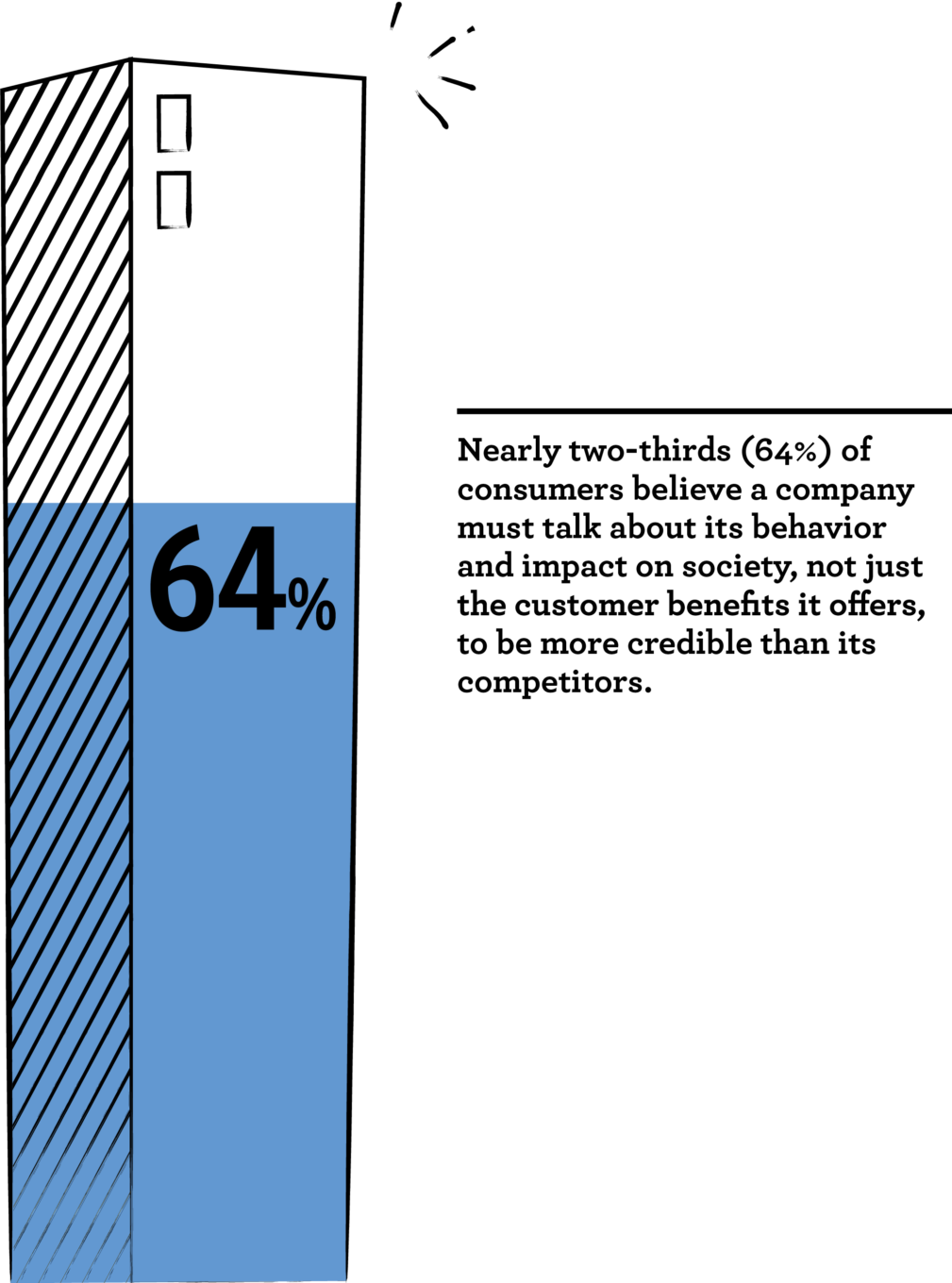Three trends shifting consumer purchase behaviour in a post-Covid era
The uncertainty of recent years has changed the way we think, feel, and talk about the brands we invest our hard-earned cash in. With consumers looking for more than just products that offer value for money, the pressure is on for brands to show true change and speak up about what they stand for.
Importantly, there is a difference between what you think you are saying and what consumers actually see and experience – and if you don’t have the voice to amplify this, your brand may have an authenticity gap.
Our recent authenticity research examines the factors behind consumer expectations and their actual experiences of a company or brand. This is not a new phenomenon, but the shift in how consumers perceive brands is constantly evolving – two-thirds (64%) believe that for a company to be more credible than its competitors it must talk about its behaviour and impact on society and the environment, not just customer benefits.

Consumer purchase behaviour has fundamentally shifted
You can have the slickest branding, best price point and key retailers – but if you aren’t showing commitment to your core brand values, consumers will see through the smoke and mirrors. Account director, Marie Morgan shares with The Drum three trends that are shifting consumer purchase behaviour, and why authenticity is so vital to making meaningful connections.
-
People over product
The value for money will always be key, but it’s no longer the only factor that makes people purchase. From our research, only half (47%) of consumers based their belief about a company on the services it provides, meaning there’s more to their decision.
-
Ageless youth
In the past year, we have seen the rise of ‘Gen C’, an ageless group that is categorized by culture over demographic. It’s important that brands do not assume the mindset of wanting to align with brands that represent their values applies only to generations that fall into specific age groups.
-
Climate Culture
It’s no longer good enough to say you are a sustainable brand if you simply tick a box – brands need to focus on action over initiatives. Seventy-nine per cent of consumers want brands to develop strategies that protect the environment.
Read the full article on The Drum website here.
Email us at [email protected] to bring your brand closer to what people are thinking and wanting from brands.
Find Out More
-
Achieving Outsized Impact by Building Stronger Country Reputation
February 18, 2025


